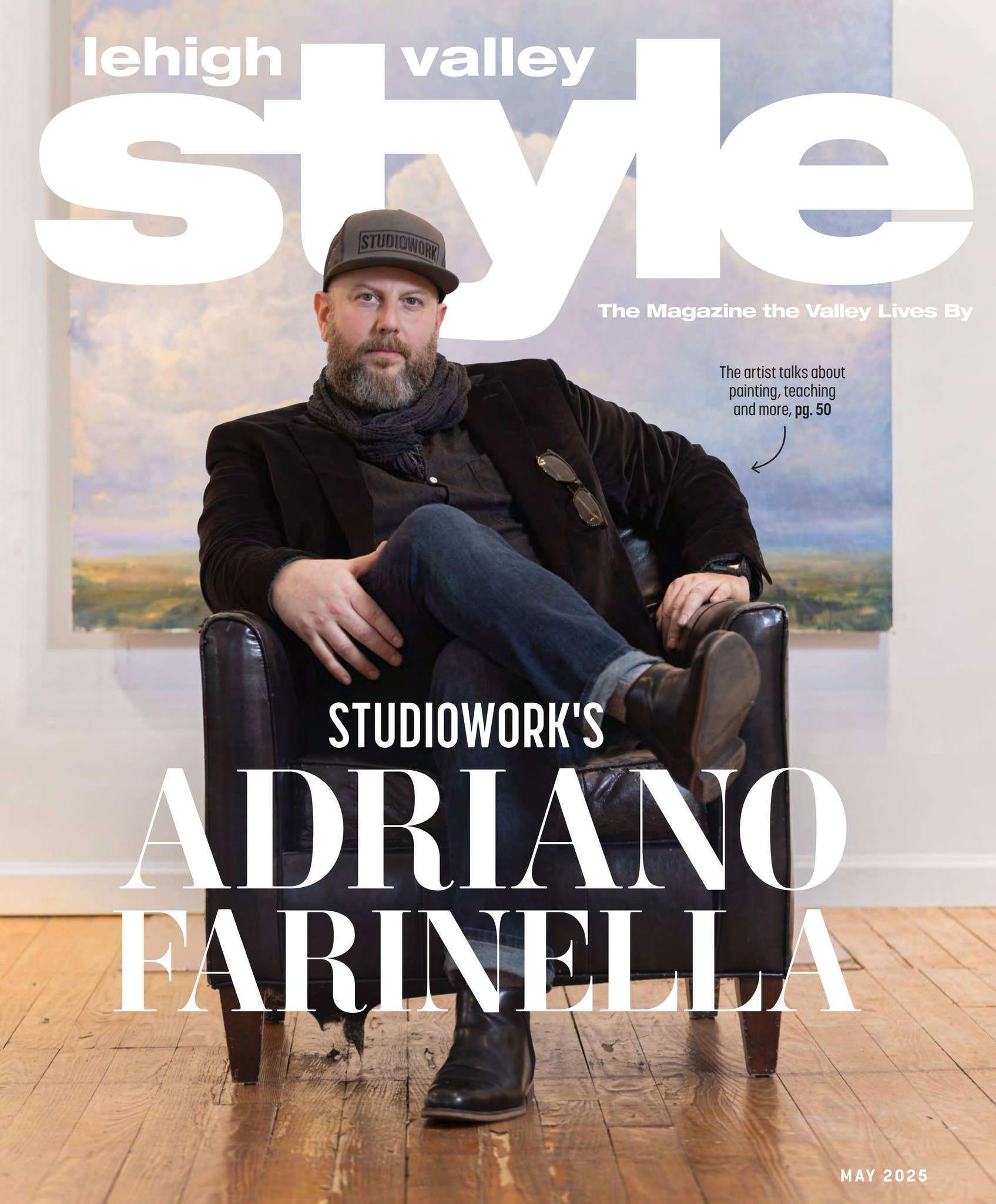Sustainability refers to adopting a way of life that can meet the needs of the present without compromising the well-being of future generations. It's an ongoing, collaborative conversation, and supporting small local businesses—especially those doing their part to transition to eco-friendly practices—is part of it. From food to fashion, furniture to dish soap, these merchants are working toward a more sustainable future.
Food sustains us.
So maybe it's the most foundational arena in which to evaluate whether farming practices, processing, working conditions and waste meet our needs to keep eating with integrity. According to the Lehigh Valley's Alliance for Sustainable Communities, “A sustainable food system: promotes resilient ecosystems and helps to mitigate global warming and climate change; ensures fair treatment for farmers and workers; promotes access to healthy, locally-grown food; supports our health; minimizes waste; and eliminates unnecessary processing.” Living in this arable area, we can give hands-on attention to local restaurants and farms, throwing support behind those striving for sustainability.
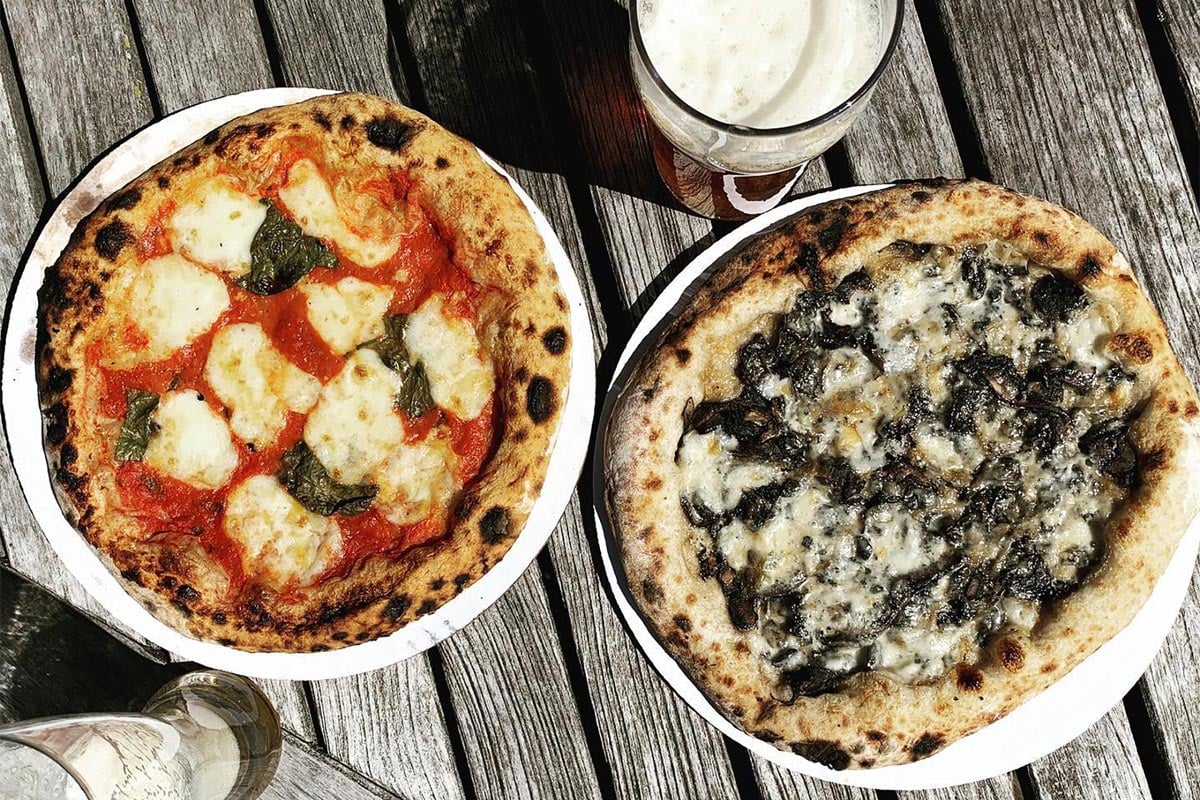
Switchback Pizza Company
The pizza pros at Switchback Pizza Company source their scrumptious ingredients locally whenever possible, getting basil from Barto, organically PA-grown wheat for their custom flour blends, meat from Saylorsburg's Stryker Farm and growing what they can themselves. This year, Switchback introduces a nano-cidery component, offering their own Red Balloon Cider made with fruit from Scholl Orchards. Dry, strawberry, hopped and barrel-aged ciders are on tap to wash down a super-fresh supper. The restaurant has been running on 100-percent solar and wind energy for years, and food waste is composted.
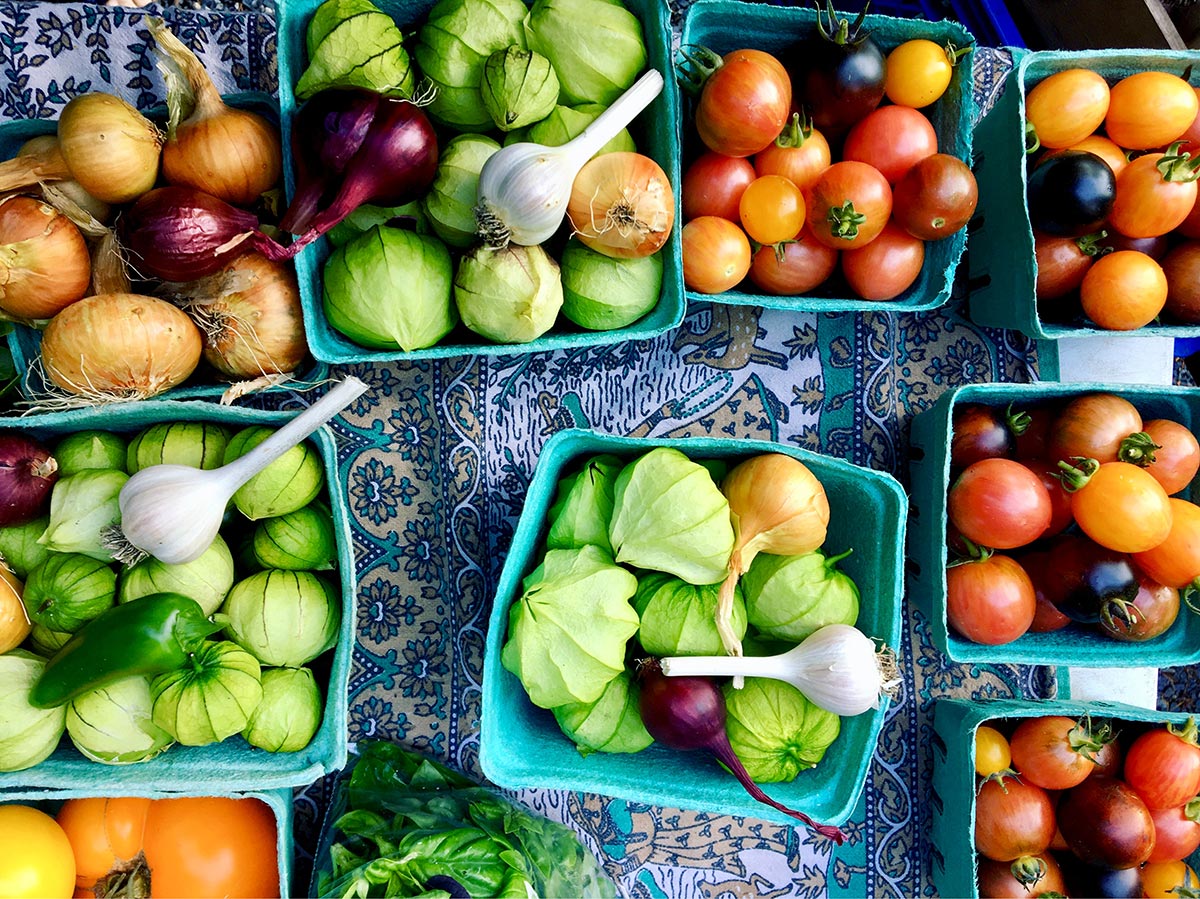
Hunter Hill Farm CSA
The no-till regenerative agriculture ascribed to at Hunter Hill Farm in Easton makes their crops healthy literally from the ground up, relying on the rich biology of well-managed soil to give plants the vigor to grow tasty, nutrient-rich produce without the aid of chemical fertilizers and pesticides. Community Supported Agriculture (CSA) from Hunter Hill and countless other local farms gives customers in their area the chance to eat fantastically fresh, gives farmers a jump on cash flow and can even create a social hub strengthening consciousness of regional concerns. Every citizen's engagement in their community contributes to the weaving of a sustaining social net.
What's in style this season?
It's hard to keep up when fast fashion has the industry churning out 52 “micro-seasons” a year, deluging consumers with heaps of cheap clothing (the bulk of the offset cost being paid by low-wage labor and polluted land). Is this why we have to declutter every 20 minutes? In a world with finite resources, forward-thinking minds are looking for a future beyond the linear dead-end life cycle of consumption we're used to. Keeping products and materials in circulation, whether they're designed to be repaired or resold, is vital and, in the case of consignment, can also sustain small businesses and share profits and savings among clientele. It's a win-win-win.
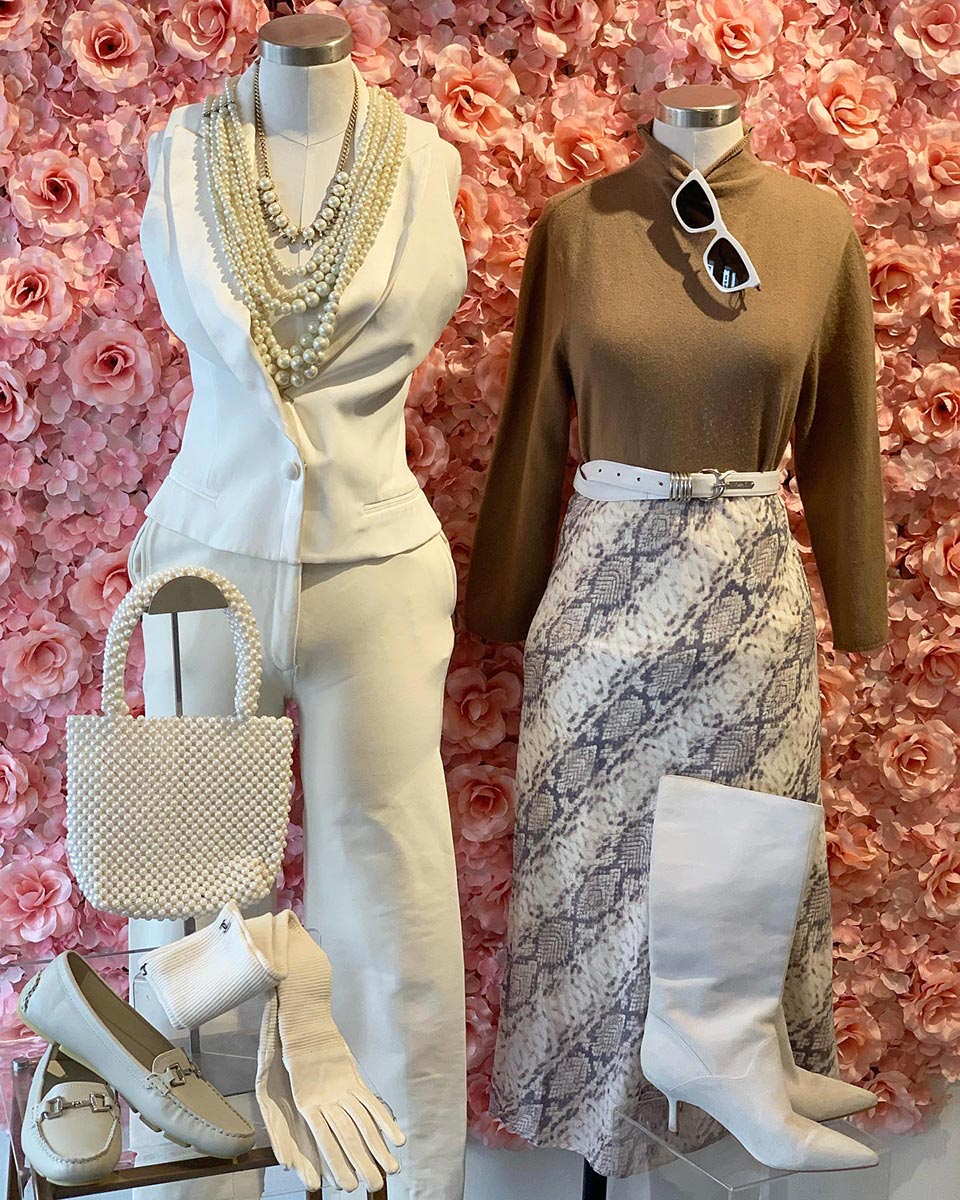
Designer Consigner
It's a beautiful thing when keeping goods out of the trash also means more affordable and diverse fashion. At Designer Consigner, clothes, jewelry, shoes and accessories from top labels can be converted into extra cash. The inventory, featuring names like Louis Vuitton, Fendi and Prada, includes a potentially wider array than you would find in any one shop, another perk to resale hubs.
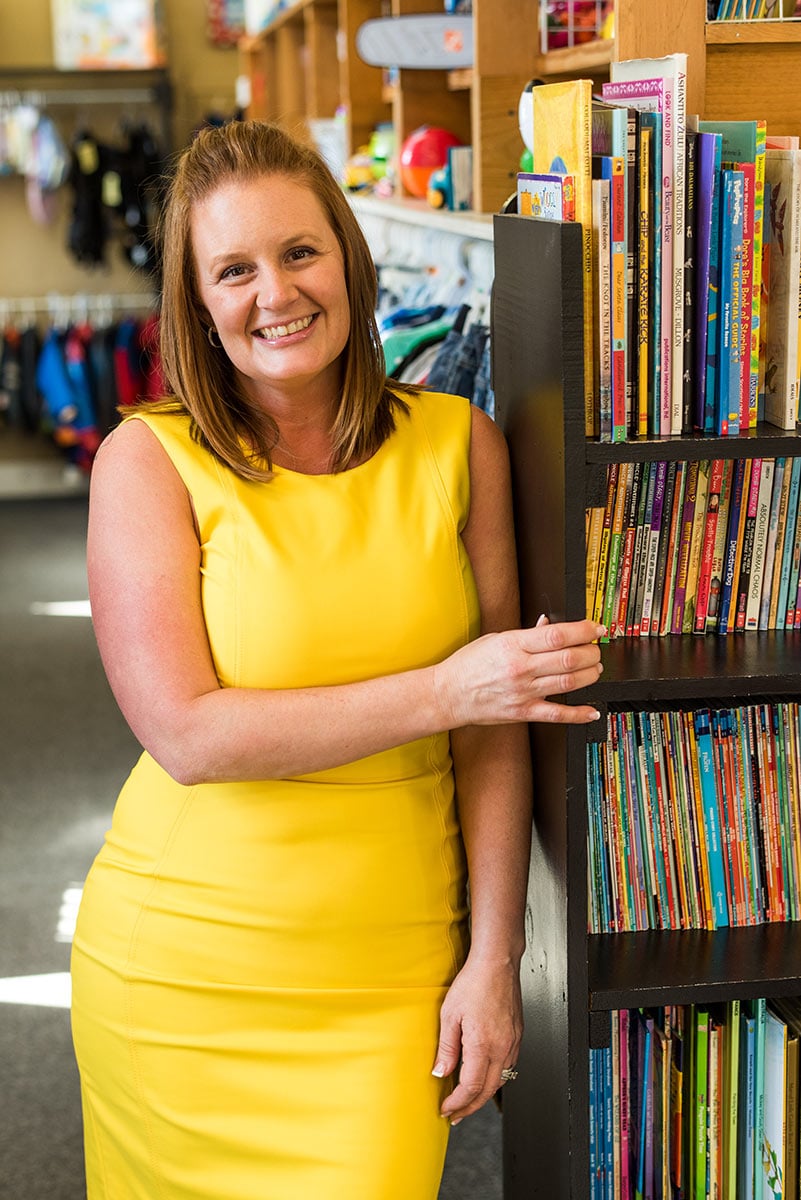
Bears Repeating
Clothing, toys, furniture, equipment—kids grow out of it all quickly as they go from bottles to sippy cups and cribs to crawling, often before their stuff has a chance to show wear. At Bears Repeating consignment shop in Trexlertown, everything from baby monitors to books and car seats to cleats finds a new home, and the previous owners make some money back to spend on the next phase of life. Generations of customers keep coming back as their needs change, and they know the items at Bears Repeating are clean and checked for quality and recalls.
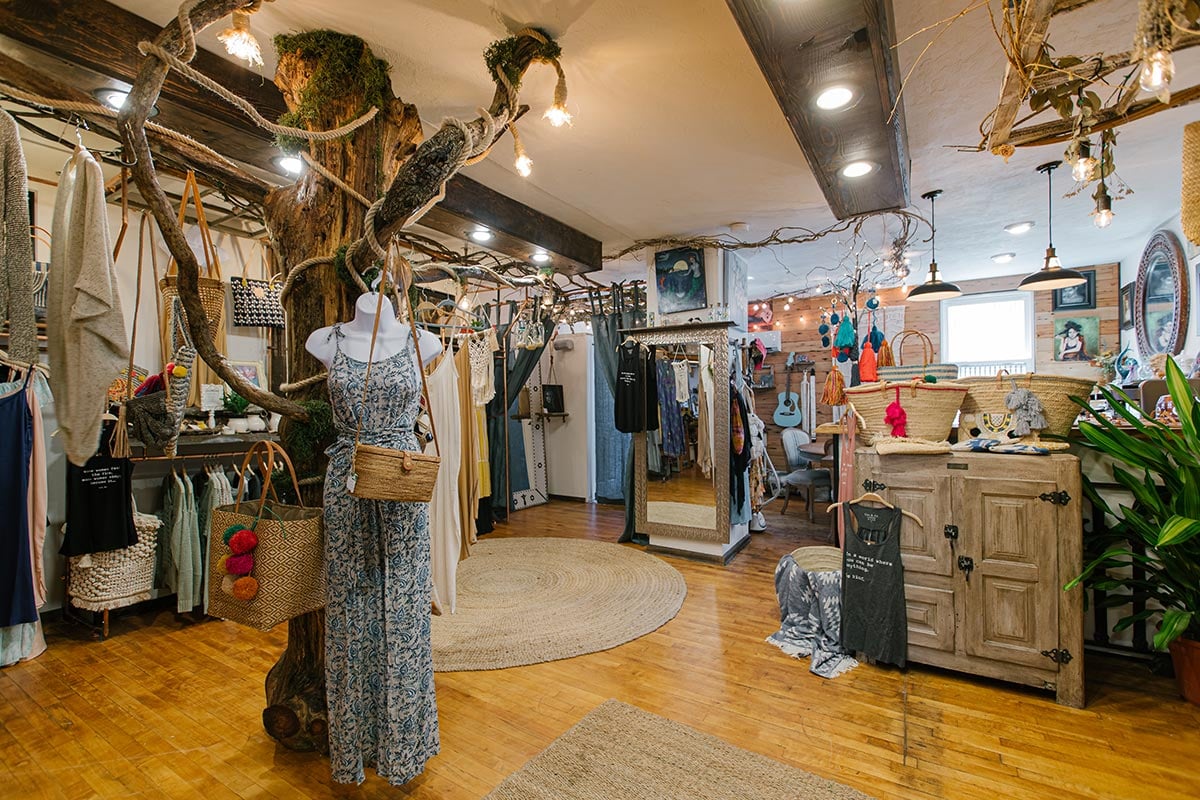
Belle Âme Eco-Boutique
Dreamy is one word to describe this shop, or maybe visionary, remodeled with 90 percent upcycled local materials and dedicated to the well-being of women. Surrounded by earthy prints, flowing goddess-like garments and handmade metal jewelry, shoppers at Belle Âme know their money is supporting a supply chain rigorously designed to give its worldwide women makers a living wage. In an industry that usually enriches men on the backs of impoverished women working insane hours in factories that pollute their communities, obligated to give up the opportunity to marry, start families and live what we consider normal lives, Belle Âme does not consider the health of women expendable in the quest to look cute.
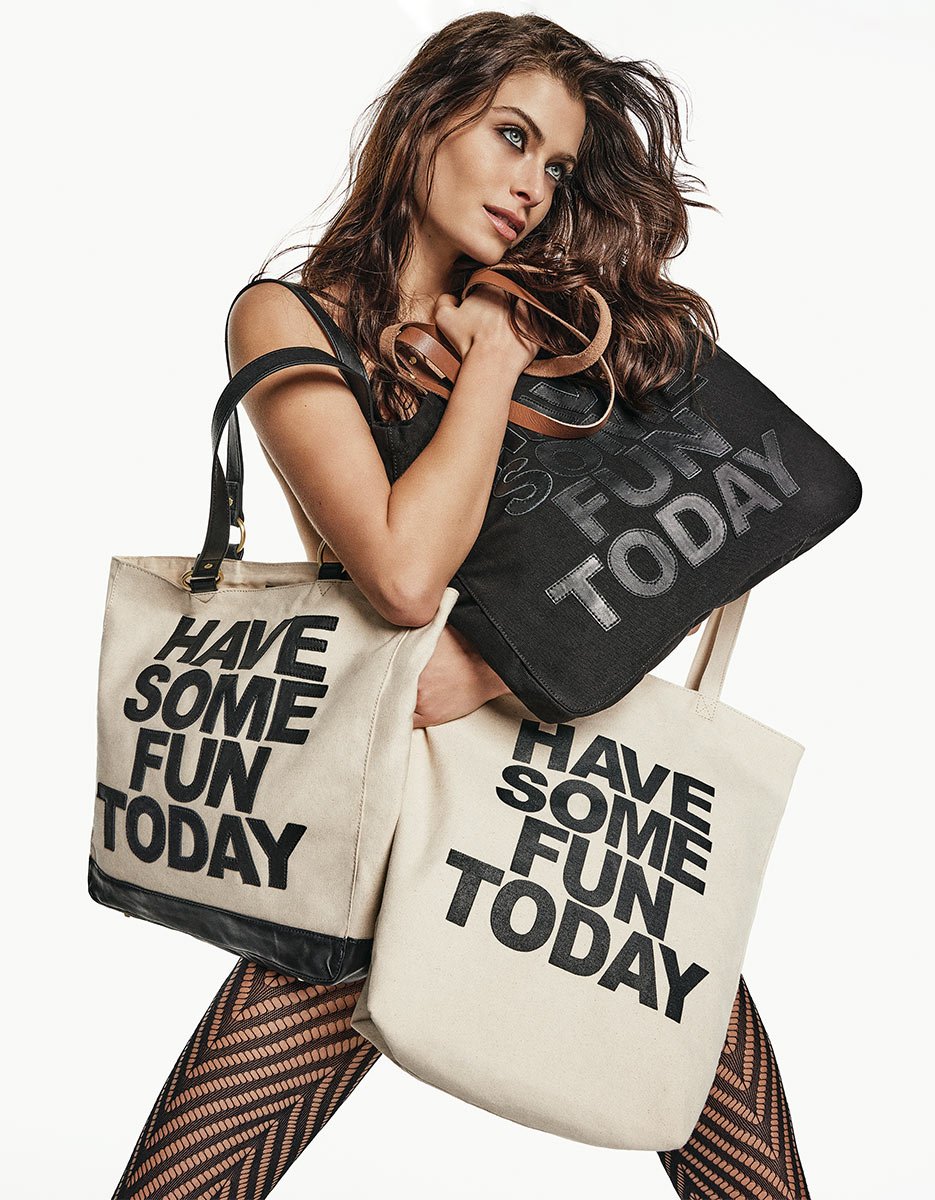
Have Some Fun Today
The sleek neutral tones of Have Some Fun Today's clothing and accessories nevertheless spark vivacious vibes with their bold sans-serif message evangelizing a simple yet profound piece of advice. The brand is dedicated not just to finding levity in life but also reevaluating how materials are sourced. The goal is to achieve a tote bag made of recycled plastic bottles, and for now all canvas and batiste-lined products are made with recycled materials. Who knew you could mix fun and responsibility in one buttery leather and creamy canvas bag? Pictured here are The Luxe Tote, The Elaine Tote and The Deluxe Shopper.
Reduce, reuse, recycle.
Recycling is an admirable goal, but reduce and reuse come first for sustainability. Lightweight, cheap and waterproof, plastic has been a game-changer for food safety, packaging and transporting almost every single product we buy, but the sheer volume of it produced in the last 60–70 years has completely overwhelmed our ability to process it. Over 90 percent of plastic doesn't get recycled, instead ending up in landfills or the famous Great Pacific Garbage Patch, now twice the size of Texas. By mid-century, our oceans are slated to contain more plastic than fish, and we're still discovering the consequences of microplastics permeating the bodies of animals and ourselves. Let's look for reusable alternatives!
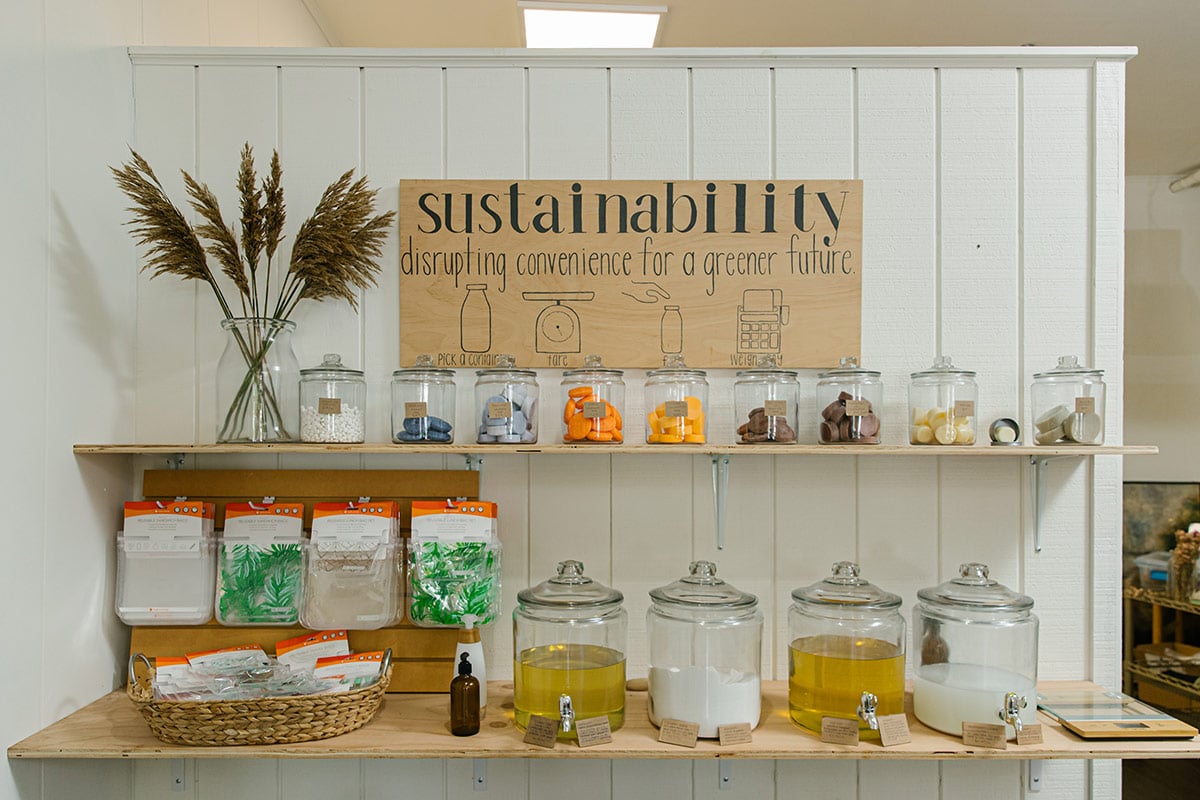
FD Market
Invest in alternatives to single-use plastics by shopping with a refillery like FD Market. This sustainable goods shop allows you to bring your own containers and fill up with around 40 personal care and household products. Each refill of shampoo, laundry powder or dish soap at FD is one less plastic bottle in demand. Little by little you can make over your home with a wooden dish brush here, reusable paper towels there, maybe some reusable produce bags. It's a shock to the system to try to go zero-waste overnight; the adoption of an earth-friendly lifestyle should be just that—sustainable!
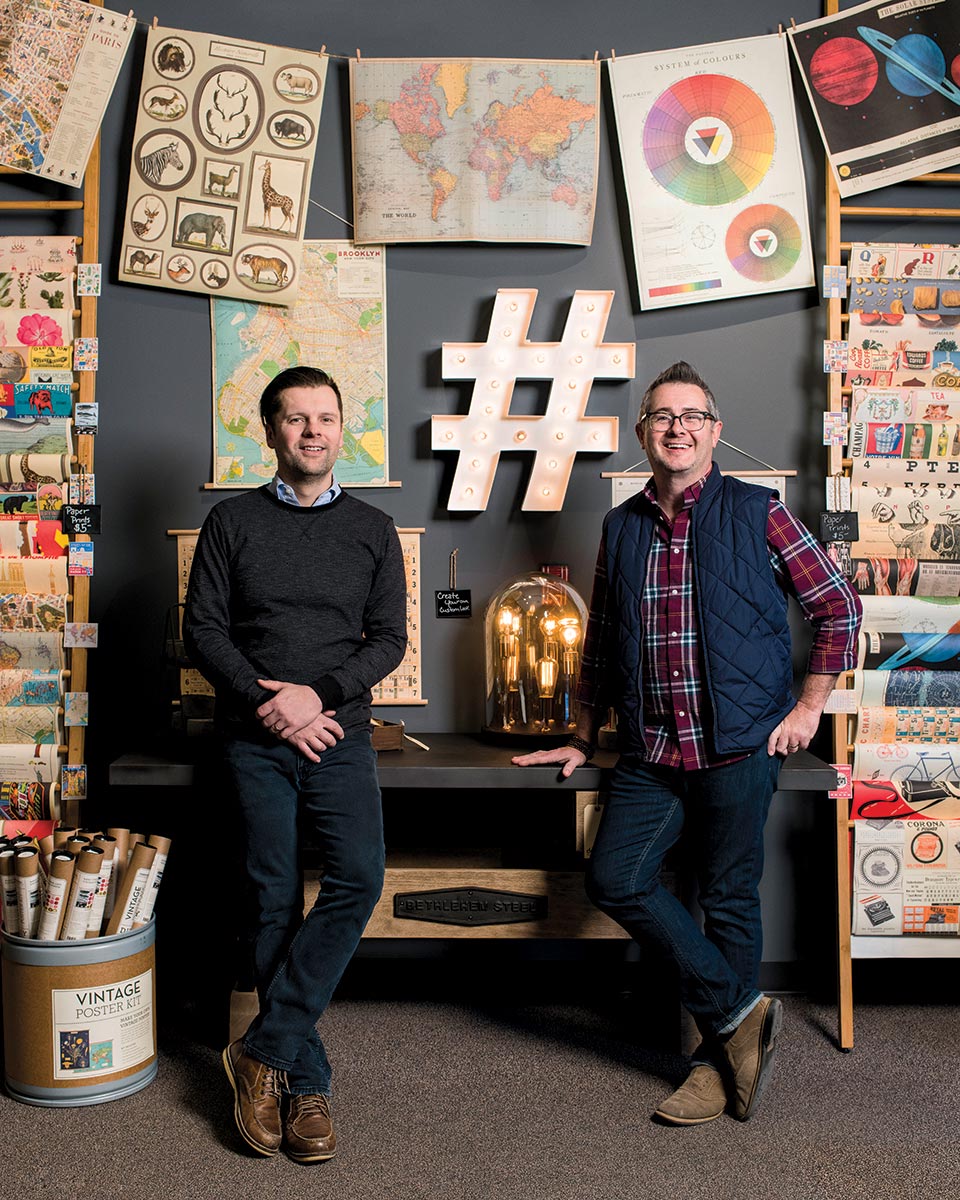
Domaci Home
Cheap furniture looks fine at first, but as the particleboard and potentially toxic glues it's often composed of begin to break down, the cost to constantly replace it piles up. Built to last, the furniture you'll find at Domaci Home is approved by the Sustainable Furnishings Council (SFC). With options made from plantation hardwoods, recycled cast iron and reclaimed wood, the sleek modern couch or mid-century sideboard you source here will have the longevity to keep it from crumbling on the curb. GREENleaders training through the SFC makes the work of Domaci's interior design studio sustainability-informed, too, so the whole process of redecorating emphasizes the eco-friendly.
Source sustainably.
The mixed materials in beauty product packaging—aluminum, plastic, glass, all in one container—often make it a nightmare to recycle, and tiny mirrors and magnets aren't recyclable at all. The way that ingredients like sandalwood, palm oil and sparkly mica are sourced can also be a big problem. With very little FDA regulation in the industry, words like “organic” and “natural” are thrown around all too freely, but many beauty companies have committed to finding ways to source, package and recycle more sustainably.

Revive Hair Salon
At Revive, they know clients value not only vibrant, healthy hair, but a vibrant, healthy planet. Instead of trashing stuff like hair clippings, color waste, PPE, foils and gloves, they recycle it through Green Circle Salons. Wouldn't you rather your hair be composted, used for research or added to bio-composite plastics than thrown in the garbage? The color and product line used at Revive is also doing its part: Davines compensates 100 percent of greenhouse gases related to packing its products, and has taken its offices carbon neutral. Based in Italy, Davines sources some ingredients like almond and tomato for its Essential Haircare line from small local farmers.
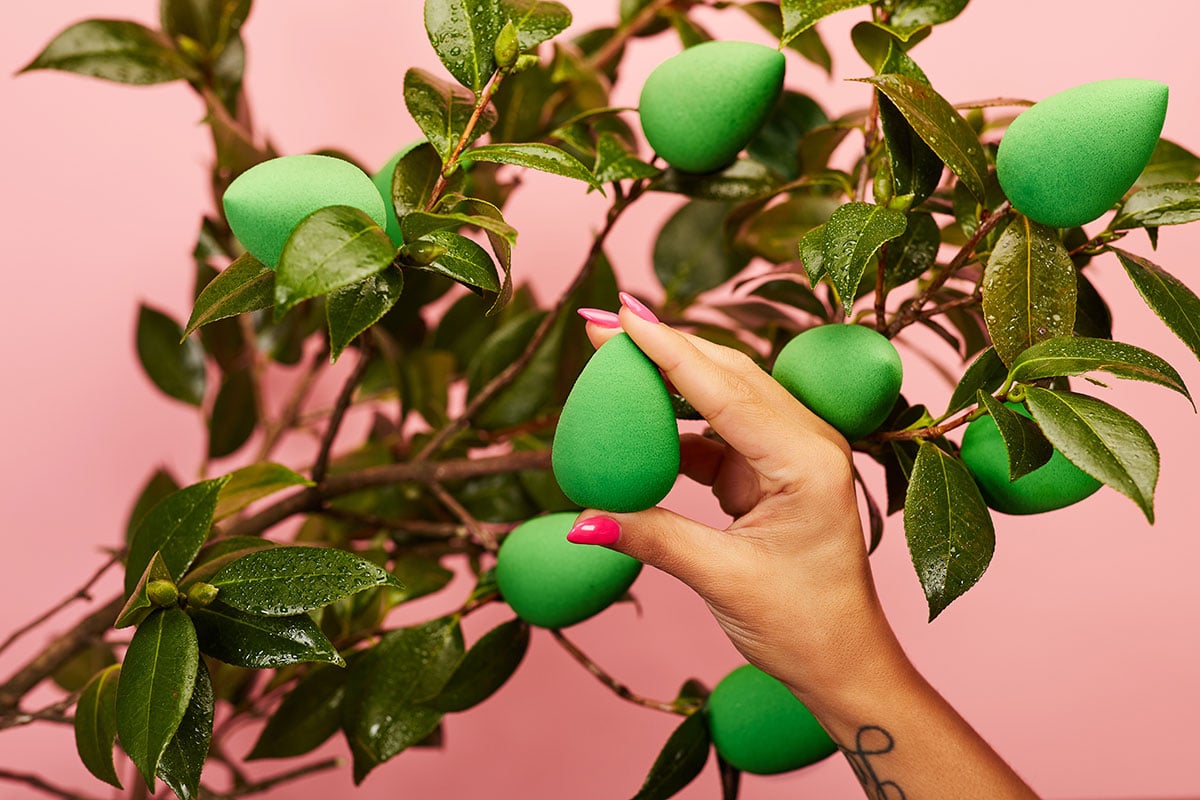
beautyblender
Manufactured in Hanover Township, the number-one-selling makeup sponge in the world is perfect for applying primer, foundation, concealer—anything you want in a seamless layer. The latest incarnation of beautyblender, called Bio Pure, is made from 60 percent plant-based foam, and the company is always striving to make a lighter footprint by using post-consumer recycled materials, reducing water waste and off-setting CO2 emissions. The medical-grade foam that makes up the beautyblender sponge is also recyclable through a program that lets you mail them back to a waste-to-energy power plant.







